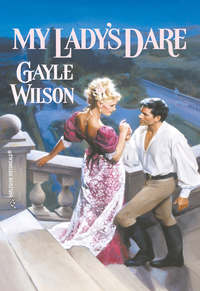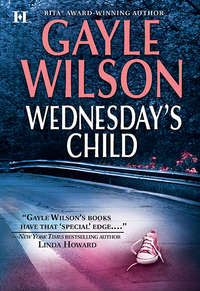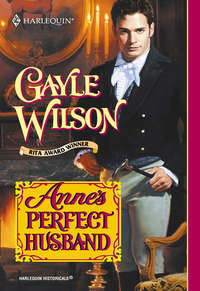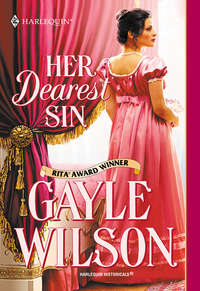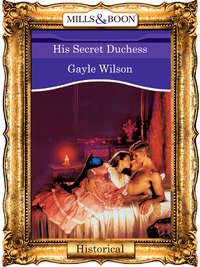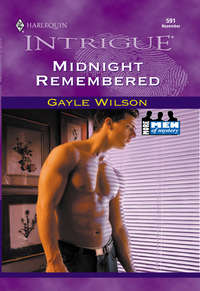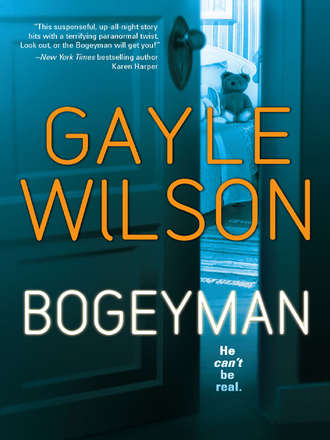
Полная версия
Bogeyman
“Hey, Cade. Just touching base. When you get in, give me a call about tomorrow night.”
Returning this particular call was way down on his list of priorities. He had run out of excuses to avoid Teresa’s invitations. And he wasn’t up to coming up with anything creative tonight.
So tell her the truth. Tell her you aren’t interested. And that you aren’t ever going to be.
There was enough of his good-ol’-boy upbringing left that he knew he was incapable of being that blunt. At least at this point. If Teresa didn’t figure it out pretty soon, he wouldn’t have much choice. As for tonight…
Carrying the balled-up shirt in his hand, he walked down the hall, not bothering to turn on a light. He’d grown up in this house. He knew every crack and crevice of it. Every squeak of the cross-sawn oak floorboards.
He flipped on the overhead in the bathroom. Dropping the shirt onto the floor, he unbuckled his belt and unzipped his uniform pants. He stepped out of those, leaving them on the tile beside the discarded shirt.
With one hand, he reached back and gripped the fabric between his shoulders to pull his T-shirt over his head. He pitched it to lie on top of the pants and shirt. Seconds later, his boxers had joined the growing pile.
He shivered a little in the cold. He should have turned up the thermostat, he realized. If he had, by the time he’d finished his shower, the house would be habitable.
Nude, he stepped out into the hall and pushed the lever up with his thumb. The furnace in the basement came to life with a whoosh, sending heated air through the vents.
He went back into the bathroom, reaching into the shower to turn on the hot water. Given the location of the heater, it would take longer for that to get warm.
Since Maria had come today, the racks had all been stripped bare for the washing machine. As he reached for a clean towel from the stack above the john, he caught a glimpse of himself in the mirror.
Dampness from the rain had spiked his hair. It glistened like jet in the light of the fluorescent. Even the twin swatches of gray at his temples were darkened by the moisture.
He had shaved around five this morning, but the ever-present afternoon stubble now made him look slightly sinister. And the shadows under his eyes made him look old.
Hell, you are old. Thirty-seven going on a hundred. Especially on nights like this.
As he turned away from the image in the mirror, exhaustion in every aching muscle, he wondered if he could be coming down with something. Probably not that lucky, he decided. The luxury of a couple of days off, spent inside a warm house, would work wonders. Both the cold and the rain were supposed to continue well into next week, and he would have no choice but to be out in them.
He slid back the glass door and stepped in, turning his back to the water. For several seconds he didn’t move, letting the force of the spray pound the bunched muscles between his shoulders. After a couple of minutes, he leaned his head back, eyes closed, to let the shower slough the cold moisture of the rain from his hair.
As his body began to lose the bone-deep chill, his tiredness, too, seemed to ease. He scrubbed every inch of his skin, literally trying to wash a way the day’s tensions.
It seemed to work. When he stepped out of the shower, the bathroom was at least ten degrees warmer than it had been when he’d entered. He grabbed the towel he’d taken from the shelf, using it first to dry his hair and then his body.
When he was finished, he wrapped the towel around his waist and opened the bathroom door. Steam wafted out into the cooler hall as he headed toward his bedroom.
Left hand on the top of the chest, he fished a pair of clean pajama bottoms out of the second drawer. He sat down on the end of the bed, which was made—the last time it would be until Maria showed up again next week—and put them on.
He stood, pulling the pajamas up to his waist. He went back to the chest of drawers for a clean T-shirt. Now all he needed were the aspirin and something to eat.
Two packets of powdered aspirin, a product everyone in the department swore by, had begun to make inroads on his headache by the time the microwave sounded. Ignoring the baleful light of the answering machine, he carried his dinner, still in its black plastic tray, along with a fork into the den.
He sat down on the couch, putting his food on the coffee table in front of him. Despite the tempting aromas of meat loaf, potatoes and gravy, he used the remote to turn on the TV.
He wolfed down the contents of the plastic tray, almost without looking at them, while he watched a rain-fogged video of the wreck his men had worked. When the local news cut to commercials, he glanced back into the kitchen.
The unanswered phone call would nag at him until he’d returned it. When he had, and had made a final check-in with the department’s dispatcher, he could crawl into bed and forget about the needs of the citizens of Davis County until the phone—or better yet, the alarm—woke him.
He pushed up from the deep cushions of the couch and made his way back to the kitchen counter. He listened to the message again, before he glanced down at his watch.
Decision made, he called up the number on caller ID and then pushed Talk. He listened to the electronic beeps, trying to decide what he was going to say this time.
“Hey, Cade,” Teresa said. “I was afraid you were still out working that mess on 65.”
“Got in about half an hour ago. The state finally decided that whatever the guy was hauling, it wasn’t a public threat.”
“That’s good to know. Hope you all don’t catch pneumonia from standing out in this rain.”
“Yeah, me, too.” He leaned against the cabinet, allowing the silence to lengthen.
Nothing was going to change. He was only delaying the inevitable. He might as well get this over with so he could go to bed.
“About tomorrow night…” he began and then hesitated.
This whole thing was his fault, and he knew it. He should never have opened the door even the crack he’d allowed. When it had started, he hadn’t seen the harm in their friendship. By the time he did, it was too late.
Teresa laughed. The sound was soft, but its bitterness apparent. “I can hear it coming.”
“Hear what coming?”
“Whatever you’ve got on. You’re either working. Or you’ve promised somebody you’ll do something for them. Or help them do something.”
“Teresa—”
“And that isn’t ever going to change, is it? Why don’t you just tell me to quit bothering you?”
“You aren’t bothering me.”
“Oh, hell, Cade. Don’t lie. That just makes it worse.”
“Look, why don’t we—”
“No. No pity arrangements. You and I are a little old for those kinds of games.”
There was nothing he could say to that. She was right. They were both too old for games. He had been for five years. Ever since Jean had walked out on him.
“I don’t blame you,” she said, speaking quickly now. “I just thought that maybe…I don’t know. There aren’t that many singles our age in Crenshaw. I just thought we had a lot in common. At least I hoped we did.”
They did. More than Cade and his ex-wife had ever had.
And look how well that worked out.
At least he and Teresa had had the same upbringing, right here in Davis County. And like him, she wasn’t interested in living anywhere else.
Despite knowing that, there was nothing there. No spark of interest. Not on his part. Knowing himself as he did, he knew there would never be.
He resisted the urge to offer more platitudes. The quicker they got through this, the less painful it would be. For both of them.
“I guess I was wrong,” she added.
“I’m sorry.” Despite his intentions, the apology slipped had out.
He hadn’t meant to hurt her. The fact that he wasn’t interested in a relationship didn’t have anything to do with Teresa. Maybe if he told her that…
“It isn’t you.”
“Oh, Lord, Cade. At least spare me the crap.”
“I’m sorry.”
“And for God’s sake, stop saying that.”
He obeyed, willing himself not to prolong this. Again the silence grew.
“You’re a good man, Cade Jackson,” Teresa said finally. “Even if you aren’t, and won’t ever be, my man. You don’t owe me any explanations, so don’t bother trying to think them up. Just…If you ever change your mind…”
He waited, lips pressed together. She never finished the sentence. Instead, there was a low click and then the dial tone in his ear.
After a moment he put the receiver back on the stand, stopping the sound. Despite his exhaustion, despite the promise he’d made to himself, he didn’t move. Not to cut off the light or to head to bed.
You and I are a little old for those kinds of games. That went along with what he’d been thinking when he’d looked into the mirror tonight. Thirty-seven going on a hundred.
In every way that mattered, Teresa Payne was far too young for him. And he no longer believed he was ever going to find someone who wasn’t.
She had been right last night, Blythe realized. There was no overhanging branch up there. No shutter. And absolutely nothing to bang against that window.
“What are you looking at?”
Blythe turned to find Maddie standing at her elbow, blue eyes shifting from her face up to the bedroom window. The little girl was wearing only her nightgown. Although it was made of thick flannel, with long sleeves and a deep flounce, long enough to brush the winter-browned grass, it offered too little protection against the early morning cold.
“There was something bumping against your window last night. I could hear it. I thought maybe I could see whatever it was from down here.”
She had come downstairs and out through the screened porch as soon as she’d woken up, leaving Maddie asleep in her bed. Or so she had thought.
“I didn’t hear anything.”
“You don’t remember?”
“I didn’t hear it.”
This was the same kind of stonewalling with which Maddie replied to questions about her nightmares.
Stonewalling? She’s four. If she says she doesn’t remember, then she doesn’t. She isn’t capable of that kind of deception.
And how does a little girl not remember something tapping against her window? Or dreams that make her scream hysterically?
“Well, whatever it was, it doesn’t seem to be there now,” Blythe said, turning to look down at her daughter with a smile. “How about some breakfast?”
“Egg McMuffin?”
“Not exactly what I had in mind. How about bacon and eggs and toast?” That was the kind of food she never had time to prepare in the mornings as she was rushing to get Maddie ready for Ruth’s and herself ready for work.
“That’s what Delores always fixes.”
Of course. Delores and Miz Ruth couldn’t imagine starting the day without a cooked breakfast.
“So what would you like? Other than McDonald’s.”
“Cereal. Coco Charlies.”
The Egg McMuffin would probably have been a more nutritious choice, Blythe thought. Death by sugar.
Despite the unfortunate choice of words, Blythe managed to hold on to her smile as, hand between the small shoulders, she turned the little girl back toward the house. “Coco Charlies it is.”
“It makes its own chocolate milk,” Maddie said cheerfully, skipping along in front of her.
With its concrete floor and open walls, the screened porch was almost as cold as the outside. The small kitchen, however, had already warmed in the few minutes since Blythe had turned up the heat. This house might have its problems, but at least the plumbing and the furnace were reliable.
Fingers crossed.
While Maddie took her place at the table, Blythe retrieved the box of cereal from the old-fashioned pantry. On her way across the room, she opened the fridge and took out a quart of milk. She set both on the table and reached into the cabinet above the sink for a bowl.
Easier than eggs and bacon. And if the sugar made Maddie hyper, then there was no one to be bothered by it but her.
If Ruth and Delores at their age could put up with her daughter’s energy day after day, then she certainly had nothing to complain about.
Except maybe too many nights of lost sleep.
“So you really didn’t hear anything last night?” She dumped a cup or so of the brown pebbles into the bowl and covered them with milk.
“Rain. And the thunder.”
“You didn’t mind that?”
Maddie shook her head, digging her spoon into the mess in the bowl. She was right, Blythe realized. The milk had already taken on a decidedly brown tinge.
“Do you?” Maddie asked, looking up from under her bangs.
“Do I what?”
“Mind the rain?”
“Not most of the time.”
“Maybe that’s what you heard.”
“I don’t think so.” She didn’t want to make Maddie fearful. “Maybe it was a bird,” she suggested, sticking the milk back in the refrigerator. “Or a squirrel.” She turned back to see Maddie’s eyes come up again, widened with interest.
“Trying to get out of the rain?”
“Maybe. Maybe they were just cold,” she added with a smile.
“Then…would it be all right to open it for them the next time?”
“Open the window?” For some reason, despite the winter sunlight flooding the kitchen, last night’s chill was back.
“So that whatever is knocking can come in.”
In Maddie’s world, the one Blythe herself had created, you took care of those who couldn’t take care of themselves. You fed strays and rescued chipmunks from the neighbor’s cat. And if something was cold and hungry, you let it in.
Except not this time. Even though Blythe couldn’t explain the certainty she felt about that, she knew that whatever had caused the tapping she’d heard last night wasn’t something she wanted to let into her home.
And especially not into Maddie’s bedroom.
3
“Mama! Help me! Somebody help me!”
The screams pulled Blythe out of a sleep so deep that, despite her exhaustion, she couldn’t believe she’d achieved it. After all, she had tossed and turned in Maddie’s narrow bed for what seemed like hours. Listening for the tapping. Straining to identify every creak of the old house. She had finally drifted off, only to be awakened as suddenly as if someone had poured ice water over her.
She scrambled from under the covers, not stopping to pull on the woolen robe that lay across the foot of the bed. She ran across the heart-pine floors, bare feet skidding across their smooth surfaces as she made the turn through the doorway of Maddie’s bedroom and headed down the hall toward her own.
In the cold light of day—when her heart wasn’t frozen with fear or her mind imagining ridiculous scenarios—she hadn’t been able to justify letting the child sleep with her again. But she also couldn’t bring herself to put her back in that bedroom.
She had wondered if whatever she’d heard tapping at the window last night in Maddie’s room could precipitate the night terrors. Obviously, she’d been wrong.
“Mama, wake up. Please, Jesus. Please, somebody help me. Daddy. No. Daddy.”
By the time Blythe reached the doorway of her bedroom, the panicked screams had increased in volume. Following the now-familiar pattern, the little girl’s shrieks were growing so frenzied, words were no longer distinguishable. Piercing and hysterical, the screams echoed and reechoed through the room, even when Blythe turned on the bedside lamp.
As always when the child was in the grip of a terror, Maddie’s eyes were open, their dilated pupils eating up the blue iris. Blythe knew from experience that the little girl was totally unaware of her surroundings, still trapped in the horror of whatever she was dreaming about.
Blythe threw back the covers and then lifted her daughter to hold her against her heart. She rocked her back and forth in a rhythm familiar to them both since Maddie had been a baby.
“Shh. I’m here. I’ve got you. Everything’s all right.”
After what seemed an eternity, the little girl responded, turning her head to bury her face between her mother’s breasts. Through the thickness of her flannel gown, Blythe could feel the sweat-soaked hair. At least the shrieks had faded to whimpers.
Over the top of Maddie’s head, Blythe released a sigh of relief. Her own nightmare was that one night her daughter wouldn’t return from whatever terrifying place the dream took her. Tonight she had, and Blythe sent a silent prayer of thanks heavenward.
She had done that far more often since she’d come back to Crenshaw. Prayed. It was something she couldn’t remember doing much of during the last few years. Not even during those terrible months of John’s illness.
Maybe she’d sought divine intervention more often because she had returned to her roots, the town where she’d spent her childhood, which had certainly not lacked for religious instruction. Or maybe, she admitted, it was that she was at the end of her own very human resources in knowing how to deal with what was going on.
Why wouldn’t she be? How could she be expected to know what to do with night terrors so severe she literally feared for her daughter’s life—or her sanity. Or with inexplicable noises that chilled her to the bone.
She leaned back, attempting to put some space between them so that she could look down into those normally lucent and guileless eyes. Maddie refused to look up, clutching her more tightly instead, small fingers locked into the fabric of Blythe’s gown.
“It’s all right,” she whispered again. “It was just a dream. I’m right here, and I have you.”
There was no response. At least Maddie was no longer trembling.
Gradually Blythe’s own panic began to ease. With the light of day, she might again be able to convince herself that this scene, which had been repeated no less than a dozen times in the last few weeks, had not been nearly as frightening as she remembered.
With one hand, she brushed damp tendrils of fine blond hair away from her daughter’s face. In response to the gesture, Maddie finally leaned back, looking up at her.
In the glow from the lamp, the little girl’s features seemed illuminated, as if lit from within. The blue eyes had now lost the look of horror they’d held only moments before.
“What’s wrong?” Maddie’s pale brows were drawn together in puzzlement.
Unsure how to answer the question, Blythe forced a smile. “You had a bad dream. Don’t you remember?”
The child shook her head. She raised a fist, rubbing her eyes in that timeless gesture of sleepiness.
“Don’t you remember anything, Maddie? Not even what made you call me?”
Another negative motion of the sweat-drenched head, and then her daughter leaned tiredly against her chest again. As she did, she put the thumb of the hand she’d used to rub her eyes into her mouth. In the stillness, Blythe listened to the sound of her sucking it.
The psychologist she’d taken Maddie to had advised she not make an issue of this, although the habit was something the little girl had outgrown years ago. Ignore it and everything else, the woman had said.
She had reassured Blythe that night terrors weren’t uncommon in children Maddie’s age. Although there was definitely a genetic component to them, they were usually triggered by stress.
Probably the result of her father’s death, combined with the move, the psychologist had suggested. She just needed lots of love and reassurance that she was safe and that you’ll always be there for her. Other than that, it was better to completely ignore the nightmares.
Blythe had had to fight against her instinct, which was to ignore the advice rather than the nightmares. She wanted to question Maddie about her dreams. To talk to her about them. To find out if there really were, as it seemed, no lingering traces of whatever horror paralyzed her in the darkness.
Instead, she had listened to the expert. About that, as well as about not sleeping with her daughter, which was one bit of advice she no longer intended to follow. At least not right now.
“I think I’ll sleep in here with you the rest of the night,” she said, pulling the covers back.
Obediently the little girl scooted over in the bed, making room. Blythe slipped between the warm sheets, settling the quilts around them again.
Before she reached over to turn off the lamp, she took one last look at her daughter. The little girl had already cuddled down on her side, her thumb back in her mouth. Her lashes lay motionless against the apple of her cheek, her breathing again relaxed and even.
Asleep? Was it possible that she’d already dropped off, despite the state in which Blythe had found her only minutes before? Something she obviously had no memory of.
Thank God, Blythe thought, completing the motion she’d begun. And while you’re at it, dear Heavenly Father, would you please give me that same blessed forgetfulness?
There was no answer to her prayer. At least not an affirmative one. Just as there had been no answer to any of the others she had prayed since she’d returned.
“Land sakes, child. You look like death warmed over. You sickening for something?”
“Too little sleep,” Blythe said, taking the cup of coffee her grandmother held out to her.
As soon as she had it in her hands, she turned her gaze back to the scene revealed through the kitchen window. Maddie was playing in her great grandmother’s sunlit back garden, the one where Blythe had spent so many happy hours during her own childhood.
The tire swing she’d played on still hung from the lowest branch of a massive oak. Maddie’s body was draped through it now, her jean-clad bottom and legs and the soles of her scuffed sneakers all that were visible from this angle.
“She having more of those nightmares?”
Blythe turned to find her grandmother still standing at her elbow, her gaze also fastened on the little girl. In an attempt to hide the sudden thickness in her throat at the genuine concern in the old woman’s voice, Blythe lifted the steaming cup and took a sip. Despite the strong flavor of chicory, a remnant of her grandmother’s childhood in St. Francisville, the coffee warmed her almost as much as entering this house always did.
“Night terrors,” she corrected softly, finding it difficult to believe that the child they were watching was the same one who had trembled in her arms only hours before. “An appropriate name. She’s certainly terrified by whatever she sees.”
“But if she doesn’t remember—”
“I remember. I thought last night—” Blythe stopped, hesitant to put her fear into words, lest doing so should give it some actual power.
“You thought what?” her grandmother asked when the silence stretched between them.
“I’m afraid she won’t come back from wherever she is.”
“Oh, child. You don’t believe that. You can’t.” With one weathered hand, its fingers knotted with arthritis and the blue veins across the back distended beneath the thin skin, her grandmother touched her fingers as they gripped the cup, seeking warmth for the coldness that seemed to have settled permanently in her chest.
“You haven’t seen her. And anyone seeing her now…” Blythe didn’t finish the thought, knowing that she could never explain the gap between the picture below and the events of last night.
“Why don’t you tell me exactly what happens?” her grandmother suggested. “Sit down at the table, and we’ll drink our coffee while you tell me all about it.”
“I should watch her—”
“In Crenshaw? Who you gonna watch her from here?”
The old woman was right. The backyard was as safe as church, to use one of her grandfather’s favorite expressions. There was no reason to fear for Maddie’s safety. That was one of the reasons Blythe had decided to come home.
She’d been reluctant to talk to anyone about the terrors. More reluctant to mention the tapping. The kindness in her grandmother’s voice encouraged her to share her fears, however, just as it always had. Here in this kitchen, she had revealed a hundred secrets during her adolescence.




